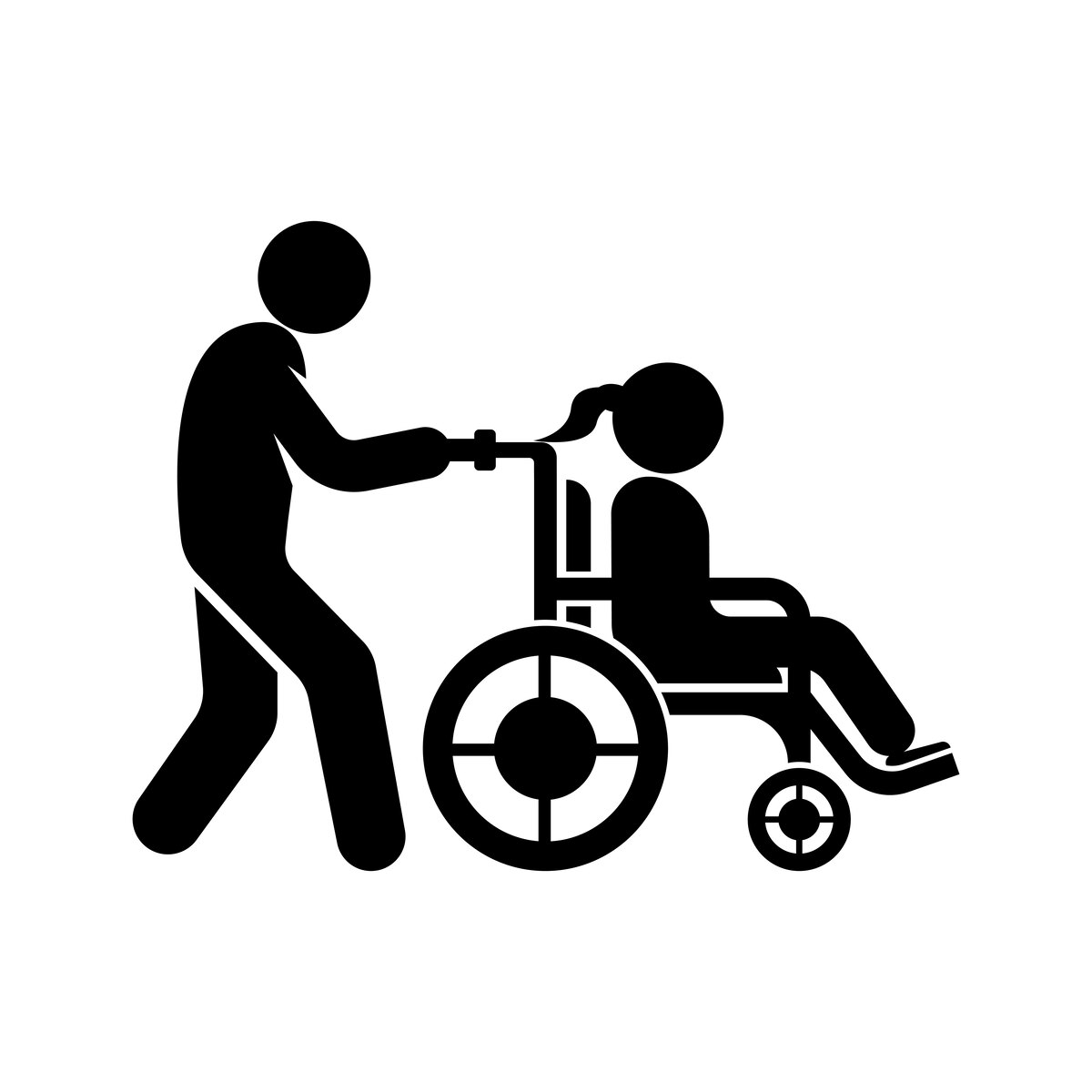Our team of experts will personally supervise and help you improve your mobility and balance and build strength thereby allowing you to enjoy a long life.
As we age, our bodies naturally go through changes that can affect our physical function and mobility. Geriatric physiotherapy is one such specialized form of physiotherapy that is designed to help older adults improve their physical function and manage age-related conditions.
Geriatric physiotherapy focuses on improving physical function, reducing pain and stiffness, and helping older adults maintain their independence. It can be used to treat a variety of conditions, including arthritis, osteoporosis, Alzheimer’s disease, Parkinson’s disease, and balance disorders.
At Pain Free India Physiotherapy At Home, our goal is to help elderly patients improve their mobility, ease their pain and help them be independent in their own right.

Geriatric Syndromes We Treat
When you opt for geriatric physiotherapy in Delhi/Gurgaon, you’ll receive treatment for the following syndromes:
- Bladder Control Problems
- Sleeping Issues
- Delirium
- Dementia
- Falls
- Osteoporosis
- Weight Loss
- Joint Pain
- Generalized Weakness
- Postural Instability
- Balance Impairment
Note: One must take into consideration the age of the patient, as the treatment effect will vary from patient to patient and may depend on multiple factors.
Benefits of Working with a Geriatric Physiotherapist In Gurgaon/Delhi
Consulting a certified geriatric physiotherapist from Pain Free India Physiotherapy At Home has many benefits for individuals suffering from geriatric syndromes. Some of which include:
- Improved physical function: Geriatric physiotherapy can help older adults improve their physical function, allowing them to perform daily activities much more easily and comfortably.
- Reduced pain and stiffness: Geriatric physiotherapy can also help reduce pain and stiffness associated with age-related conditions, such as arthritis and osteoporosis.
- Improved balance and stability: Geriatric physiotherapy can improve the balance and stability of the affected patients thus reducing the risk of falls and other accidents.
- Increased independence: Geriatric physiotherapy can help older patients maintain their independence by improving their physical function and reducing pain and stiffness.
- Better quality of life: Geriatric physiotherapy can vastly improve the overall quality of life for older patients as it reduces their overall pain, and improves their strength, and mobility.
Geriatric Physiotherapy In Delhi/Gurgaon At Your Convenience
We understand that patients experiencing geriatric symptoms might shy away from their issues and from the fact that they need assistance for their day-to-day tasks. So, we make sure to keep it discreet as possible and make our services as easy and comfortable as possible.
To arrange a session with us, you can reach out to us for a clinic appointment or a home visit or book an online session.
Once we confirm the appointment, we’ll have a quick initial assessment following which you’ll be assigned a geriatric physiotherapist. The therapist will get on with your diagnosis and chart a treatment plan for you right away.
So, if you’re looking for geriatric physiotherapy in Delhi or Gurgaon, you know who to reach out to.
Don’t let your loved ones stop living life to the fullest.
Book an appointment with us today and brighten up their world!
FAQs-
1. What is geriatric physiotherapy?
Geriatric physiotherapy is a specialised branch of physiotherapy that focuses on the assessment and treatment of conditions affecting older adults. The goal is to improve mobility, independence, and overall quality of life for seniors.
2. What types of conditions does geriatric physiotherapy address?
Geriatric physiotherapy is beneficial for a range of conditions common in older adults, including arthritis, osteoporosis, balance issues, joint replacements, and age-related mobility challenges.
3. How can geriatric physiotherapy help with balance and fall prevention?
Geriatric physiotherapy includes exercises and interventions aimed at improving balance, strength, and coordination, reducing the risk of falls, and enhancing overall stability for older individuals.
4. Is geriatric physiotherapy suitable for individuals with joint replacements?
Yes, geriatric physiotherapy is often prescribed for individuals who have undergone joint replacement surgeries. The focus is on rehabilitation exercises to restore joint function, improve strength, and facilitate a smooth recovery.
5. Can geriatric physiotherapy help with age-related mobility issues?
Absolutely. Geriatric physiotherapy addresses age-related mobility challenges through personalised exercise programs that focus on maintaining and improving mobility, flexibility, and strength.
6. What happens during a geriatric physiotherapy assessment?
During an assessment, the physiotherapist evaluates the individual’s physical function, mobility, and any specific concerns or limitations. This assessment guides the development of a personalised treatment plan.
7. Are there exercises for geriatric rehabilitation that can be done at home?
Yes, home exercise programs are often an essential part of geriatric rehabilitation. Therapists provide exercises that individuals can perform at home to maintain and build on the progress made during in-clinic sessions.
8. How long does a typical geriatric physiotherapy session last?
The duration of a session can vary but typically ranges from 30 minutes to an hour. The length may be adjusted based on the individual’s needs and the specific goals of the session.
9. Can geriatric physiotherapy help with age-related pain and stiffness?
Yes, geriatric physiotherapy includes interventions to manage age-related pain and stiffness. This may involve gentle exercises, stretching, and manual therapy techniques to improve joint mobility and reduce discomfort.
10. Is a doctor’s referral necessary for geriatric physiotherapy?
In many cases, a doctor’s referral is not required to start geriatric physiotherapy. However, it’s advisable to check with your healthcare provider or insurance company to understand any specific requirements or coverage related to physiotherapy services.

